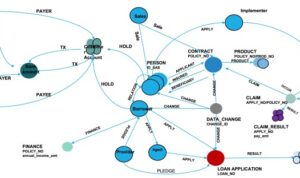Long-term care insurance is a crucial aspect of financial planning, providing coverage for services like nursing care and therapy. Let’s dive into the key factors, alternatives, benefits, drawbacks, and how to choose the right policy.
Understanding the ins and outs of long-term care insurance is essential for securing your future and ensuring you have the necessary support in times of need.
What is Long-Term Care Insurance?

Long-term care insurance is a type of insurance that helps cover the costs of long-term care services for individuals who need assistance with daily activities due to chronic illness, disability, or aging. The main purpose of long-term care insurance is to provide financial support for services that are not typically covered by health insurance, Medicare, or Medicaid.
Who Typically Purchases Long-Term Care Insurance
- Individuals who want to protect their assets and savings in case they need long-term care services in the future.
- People with a family history of chronic conditions or disabilities that may require long-term care.
- Those who prefer to have control over the type of care they receive and where they receive it.
Types of Care and Services Covered by Long-Term Care Insurance
- Assistance with activities of daily living (ADLs) such as bathing, dressing, and eating.
- Nursing care provided by licensed professionals.
- Physical therapy, occupational therapy, and other rehabilitation services.
- Care in a variety of settings including at home, in assisted living facilities, or in nursing homes.
- Respite care to give family caregivers a break from their responsibilities.
Factors to Consider Before Getting Long-Term Care Insurance
Before purchasing long-term care insurance, individuals should carefully consider several key factors to ensure they make an informed decision. Factors such as age, health status, and financial implications play a crucial role in determining the coverage and cost of long-term care insurance.
Impact of Age and Health Status
Age and health status are significant factors that can impact long-term care insurance coverage. Generally, individuals who are younger and healthier when they apply for long-term care insurance are more likely to qualify for coverage and secure lower premiums. On the other hand, older individuals or those with pre-existing health conditions may face higher premiums or even be denied coverage altogether. It is essential to assess your age and health status before purchasing long-term care insurance to understand how they may affect your eligibility and costs.
Financial Implications of Premiums
The financial implications of long-term care insurance premiums should also be carefully considered. Premiums for long-term care insurance can vary significantly based on factors such as age, health status, coverage amount, and policy features. It is essential to evaluate your budget and financial resources to determine whether you can afford the premiums both now and in the future. Additionally, consider how premium increases over time may impact your ability to maintain coverage. Understanding the financial implications of long-term care insurance premiums is crucial in ensuring you select a policy that aligns with your financial goals and capabilities.
Alternatives to Long-Term Care Insurance
When it comes to covering long-term care costs, there are alternatives to purchasing long-term care insurance. These alternatives can include self-funding long-term care or exploring government programs like Medicaid.
Self-Funding Long-Term Care
Self-funding long-term care involves setting aside your own money to cover potential long-term care needs in the future. This can be done through savings, investments, or other financial assets. While self-funding gives you more control over your finances, it also requires careful planning and saving to ensure you have enough funds to cover any long-term care expenses that may arise.
Government Programs like Medicaid
Medicaid is a state and federally funded program that provides healthcare coverage to eligible individuals, including coverage for long-term care services. To qualify for Medicaid long-term care benefits, individuals must meet certain income and asset requirements set by their state. While Medicaid can help cover long-term care costs for those who qualify, it’s important to note that Medicaid eligibility rules can be complex and vary by state.
Comparing Self-Funding vs. Purchasing Insurance
- Self-funding long-term care gives you control over your finances but requires disciplined saving.
- Purchasing long-term care insurance provides coverage for long-term care costs, but premiums can be expensive.
- Government programs like Medicaid can help cover long-term care costs for those who meet eligibility requirements.
Benefits and Drawbacks of Long-Term Care Insurance

Long-term care insurance provides a safety net for individuals who may require assistance with daily activities due to aging, disability, or chronic illness. While it offers some advantages, there are also limitations to consider.
Benefits of Long-Term Care Insurance
- Financial Protection: Long-term care insurance helps cover the high costs of long-term care services, protecting your savings and assets.
- Choice of Care: It allows you to choose where you receive care, whether at home, in an assisted living facility, or a nursing home.
- Peace of Mind: Knowing you have coverage in place can provide peace of mind for you and your loved ones, alleviating financial stress during a challenging time.
Drawbacks of Long-Term Care Insurance
- Cost: Premiums for long-term care insurance can be expensive, especially if purchased later in life. It may be unaffordable for some individuals.
- Coverage Limitations: Policies may have caps on benefits, restrictions on where care can be received, or waiting periods before benefits kick in.
- Health Qualifications: To qualify for coverage, individuals must meet certain health criteria, which could disqualify those with pre-existing conditions.
Scenarios of Benefit and Insufficiency
- Beneficial: A policyholder who requires long-term care due to a stroke is able to receive comprehensive services at home thanks to their insurance coverage, maintaining their independence.
- Insufficient: Another individual with long-term care insurance is limited to a specific nursing home facility, which does not meet their preferences for quality of care and environment.
- Beneficial: A family avoids financial hardship when their loved one requires extended care, as the long-term care insurance covers the majority of the costs, preserving their assets.
How to Choose the Right Long-Term Care Insurance Policy
When selecting a long-term care insurance policy, it is crucial to consider various factors to ensure you choose the most suitable option for your needs. Understanding policy terms, coverage details, inflation protection, and benefit triggers are key components to keep in mind.
Understanding Policy Terms and Coverage Details
- Thoroughly review the policy terms to understand what services are covered and any limitations or exclusions.
- Consider the daily benefit amount, benefit period, elimination period, and any optional riders that may enhance coverage.
- Ensure you know how the policy defines activities of daily living (ADLs) and cognitive impairment to qualify for benefits.
Significance of Inflation Protection and Benefit Triggers, Long-term care insurance
- Inflation Protection: Opt for a policy with inflation protection to ensure your coverage keeps pace with rising long-term care costs.
- Benefit Triggers: Understand the conditions that trigger benefits, such as inability to perform ADLs or cognitive impairment, to know when you can start receiving benefits.
- Look for policies with flexible benefit triggers that consider a variety of situations that may require long-term care.

